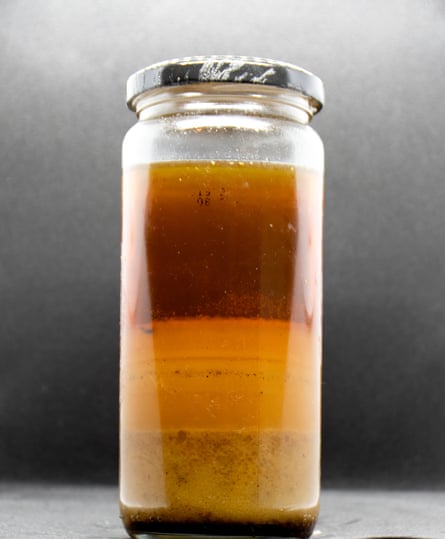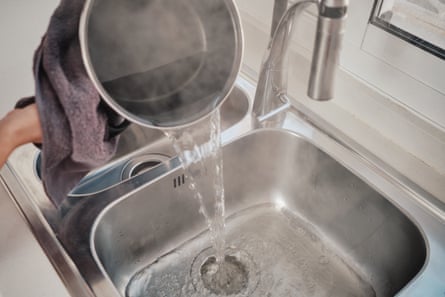
So, you shallow fried some fish for dinner and now the washing up awaits. But first, you’re forced to solve a great kitchen riddle: what am I meant to do with all of this leftover oil?
To pour it in the bin – where it’s bound to leak and cause a mess – seems wrong. You might be able to reuse it, but that’s not always an option. So can you, err, just tip it down the sink?
“No,” says Sydney plumber Lars Olsson in no uncertain terms. “As a general rule, no, you don’t want to do that. It’s not good for your drains. It’s good for plumbers, not good for you.”
Why can’t I tip oil down the drain?
The problem, Olsson says, is that oil solidifies as it cools, which eventually blocks drains. It can also combine with other waste like wet wipes to form a hard blockage known as a ‘fatberg’.
Oil wreaks havoc on the city’s drainage system, but before it gets to that point, it can also clog the pipes in your house or apartment, which will cost you a visit from the plumber to fix. Olsson warns that you’re particularly at risk if you live somewhere with older drains.
“Like everything in moderation, if you do put a small amount down, you’d be really unlucky that it does any damage. But it does happen. If you’re putting large amounts down, it will happen.”
So where am I meant to put the oil if it can’t be disposed of down the drain?
Local councils would rather you tip leftover oil into an old jar or juice container and dispose of that in the garbage once the jar is full. Small amounts of oil can be sopped up with paper towels, which can then go in the bin.
But what about, say, the little bit of excess oil from tuna cans? Can that go down the drain?
“Of course, I have to say no, you should not be putting that down the drain,” Olsson says. “But the reality is if it’s once in a blue moon, it’s not the end of the world.”
Oops, I’ve been tipping my oil down the kitchen sink. What now?
If you’ve regularly been sending your cooking oil down the drain, Olsson suggests “you stop straight away”. Next, reach for the hot water tap.
“Something you can do if you’ve been regularly putting oil down the kitchen sink is fill up your sink with the hottest of hot water and dump two or three loads of that down there,” he says.
after newsletter promotion

This is also Olsson’s solution if you’ve tipped oil down the sink by accident. Immediately flushing the drains with hot water will “melt a lot of what’s there”.
But it is essential you do not send cold water down before hot, as this will cool the oil, making it solidify faster. So capture any cold water that comes out of the tap in a jug or pot, and wait until the water is running nice and hot.
“Something like Domestos doesn’t hurt if you can throw it in there, or a decent quality dishwashing detergent, because they always have grease removers in them,” Olsson says. “But that’s about all you can do – and just stop. Really, just stop.”
What about the drain cleaner they sell at the supermarket – does that work?
“You’d be better off taking the $20-odd dollars that it costs, putting it into $5 notes and flushing those, because the $5 notes at least have sharp edges,” Olsson says. “I tell literally everybody.”
“The stuff that us plumbers use domestically [to clear drains], you cannot buy. I wear full PPE when using it … and it’s really the only stuff that works. And that is a last resort.”
Using bicarbonate of soda to clear the drains probably isn’t going to be very effective either. “If that clears it, then hot water would have probably cleared it,” Olsson says.
Again, when it comes to oil down the drain, prevention is better than a cure.
“The answer is, don’t put it down.” That’s really oil you need to know.


